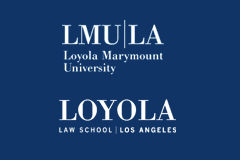Publication Date
April 2018
School vegetable gardens provide environmental services and social benefits that can have a wide impact in communities and cities, while preparing future generations for more sustainable ways of living. For a school to create and sustain a vegetable garden, both social and physical environment (soils) must be favorable. We evaluated 20 elementary schools in the Rio Piedras watershed of San Juan, Puerto Rico. At these schools, we surveyed school principals to identify social factors that are considered opportunities and constraints to establishing and sustaining a school garden. We also described the physical and chemical properties of the soils from the most suitable locations for vegetable gardens in the schoolyards. For social factors, some schools had discontinued gardening because of dwindling funding, waning interest of teachers and parents. Through in-person interviews, principals identified factors that help in implementing and sustaining long-term vegetable gardens: engagement of stakeholders, sponsorship, gardening skills and logistics, and curriculum integration. For ecological factors, the destruction of crops by exotic iguanas was also a reason that stopped school garden activities in some cases. Generally, school soils were highly disturbed, with high bulk density and low nutrient availability. The soils will require considerable remediation and management to sustain vegetable gardens in Rio Piedras schools. A social-ecological approach like that used here could be used to evaluate school gardens at other jurisdictions to increase the likelihood of success of gardening activities.
Recommended Citation
Vila Ruiz, Cristina Pilar; Shear, Theodore H.; Warren, Sarah; Flores Mangual, Mario L.; and Melendez-Ackerman, Elvia J.
(2018)
"A Socio-Ecological Assessment of the Potential for Vegetable Gardens in Elementary Schools Across an Urban Tropical Watershed in Puerto Rico,"
Cities and the Environment (CATE):
Vol. 11:
Iss.
1, Article 2.
DOI: 10.15365/1932-7048.1229
Available at:
https://digitalcommons.lmu.edu/cate/vol11/iss1/2
DOI
10.15365/1932-7048.1229
Questionnaire for school principals
